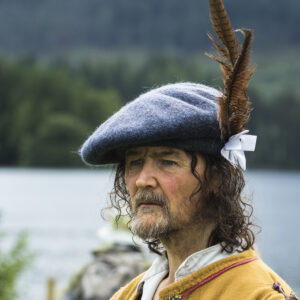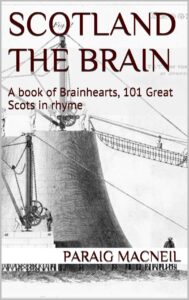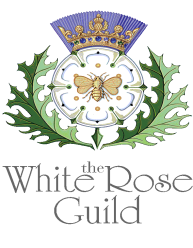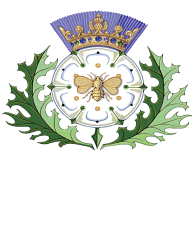Paraig MacNeil
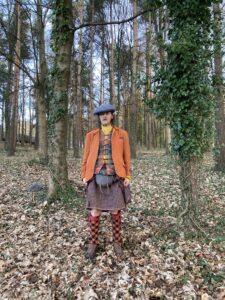
Since 1988, Paraig MacNeil, Scotland’s bardic storyteller, has been telling traditional tales, reciting traditional and original verse in all of Scotland’s languages and singing for occasions that give rise to a ‘verse or two’, whether they inspire or raise the ire. His speciality is historical epic rhyme and panegyric poetry/song of which he has to date composed over 11,000 lines. His main passion is to unearth lesser known virtue and merit of his nation wherever such may be found.
You have been out on the moorland all day, either with the rod, or the trail-shoe, or bike, as the sun falls down over the rugged peaks of the west, in the mouth of the evening.
A peat fire kindles not only the hearth but the heart as the seanchaidh opens his mouth, giving the landscape and its changing rays and shades that you have spent the day with, a sweet flavour of its character with former lives and times. Mountain peaks and valleys exude the breath of ancient giants, castle keeps resound of the clash of swords in times of dispute, while their ancient halls echo of the sound of the pibroch, as with the strings of the metal-stringed harp, that punctuate the metred verse of the bards. Scenes of ancient romance where warrior-hunters rescue maidens in distress, and where cattle-drovers are also riever/poets, step lightly over the land, where once Fin and Ossian outran the four winds.
There is no TV, radio, nor script here, but only history rekindled as filtered through the eyes and mouth of an unbroken line. Here the cordite-filled fields of strife fill the air in the peat-reek from the whisky-still. The hearer, young or old, listening with intent, will often recall it to pass on to the next generation, like unto the seed sown and the harvest reaping.
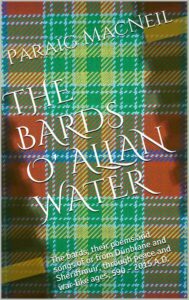
Such also draws out other tradition-bearers in the community, as with the Cal-Mac Hebridean Ferry Festival in the mid 90s, when two elderly but robust ladies step lightly board the ship at Port Aiskaig, Islay. One having written a book of her exploits shooting deer in the Isle of Jura, also had played her pipes for the Queen. The other ran a 300 acre croft on her own, tending to native Highland cattle whilst singing ancient Gaidhlig airs to them. The Battle of Gruinnard Bay gets a retelling with the song Ceann Traigh Gruinneairt, lamenting Sir Lachlan MacLean 14th Chief of Duart and the strange creature that killed him with a bow and arrow, as with the ancient tale of Aodann Bhais (The face of death) and Togaibh an t-Aranach (Lift up the Arran man) in ancient strains fills the ship’s lounge.
Francis Macnab of Macnab and his outrageous exploits, are aired once more at the official Edinburgh Festival back in 1993, after which a certain gentleman calls me at the dwelling. That evening, in the company of other storytellers and traditional musicians this George Macnab of Macnab, a historical architect, musician and canvass artist, presents me with a diminutive version of one of the two life-size Raeburn portraits of the famous Macnab of the tales, in appreciation for the stories told. We are remained friends until his death, when a new Scots song in his memory at another date, is to be performed a Clan Macnab dinner.
So not only does traditional storytelling keep alive and indeed regenerates the tradition, but also draws out other hidden gems that might not have otherwise been unearthed.
